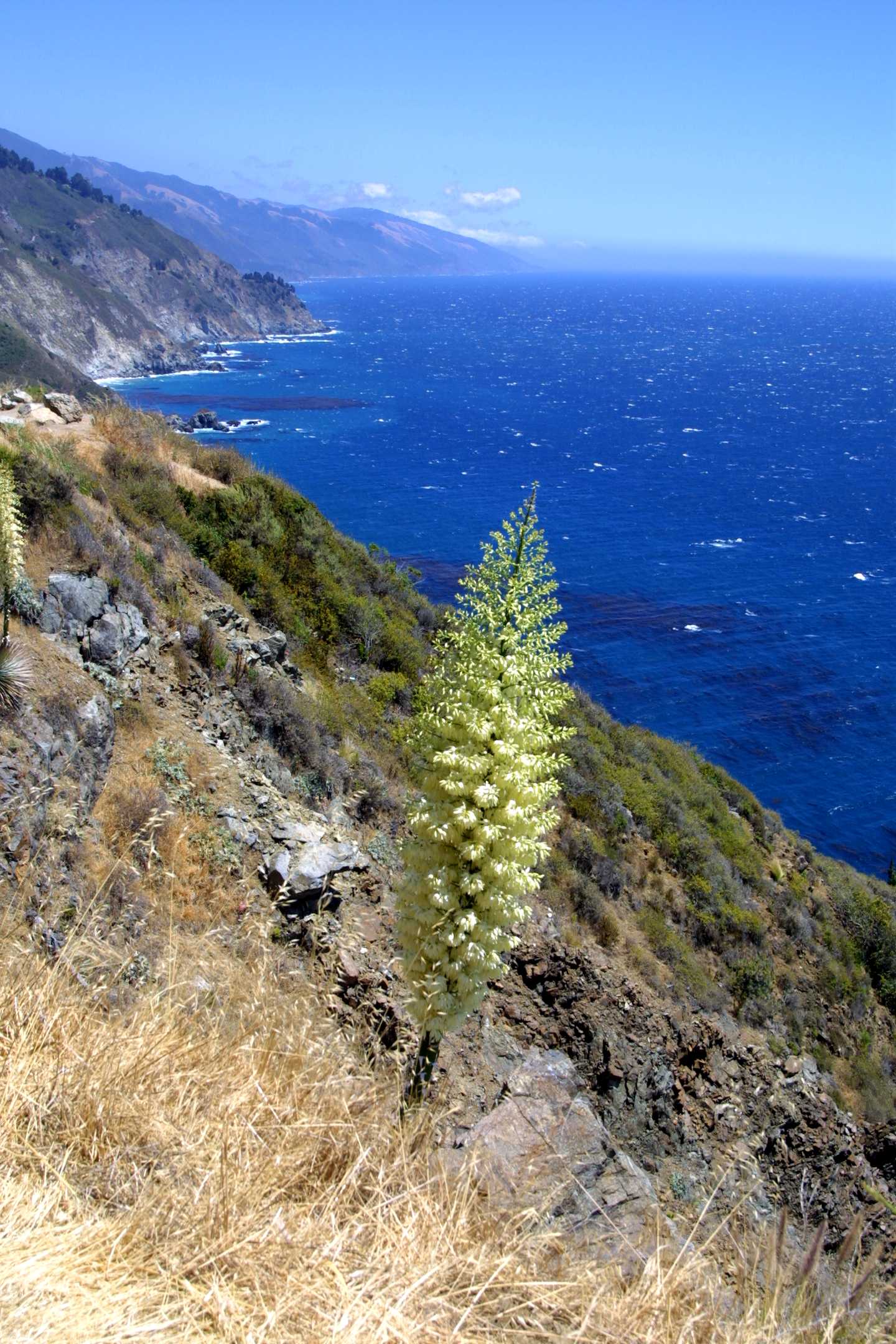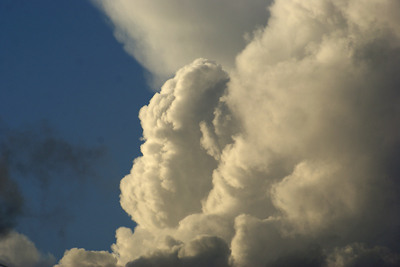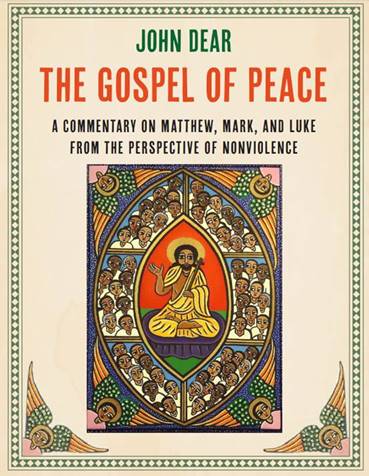By John Dear
August 6, 2021
Recently, a peace activist friend told me about visiting a physical therapist to help with some issues. They got talking, one thing led to another, and the woman therapist told an unusual story.
Years ago, she spent her junior year in college in Hiroshima, Japan. She stayed with a family near the local university to help learn the language. The family’s house had a cottage in the backyard where “Grandmother” lived.
One day, the mother asked the visiting American, “Would you like to meet Grandmother?”
“Of course,” she said.
“Grandmother does not come out during daylight,” she was told, mysteriously.
Several times, over the next few days, the American visitor spent the evening drinking tea listening to Grandmother tell stories of her life.
Turns out, she had been a young mother in her early twenties living on the edge of Hiroshima, the day the United States dropped the atomic bomb, 76 years ago on August 6th and vaporized and eventually killed approximately 200,000 people.
At the very moment the bomb exploded, she was outdoors carrying her young daughter on her back. She had her back to the bomb, and the young daughter immediately disappeared. She herself was burned and exposed to radiation but somehow survived.
But massive scars, that is, big mounds of skin like potatoes, had covered her face, arms and back ever since. Periodically, they have to be cut off.
The young American listened in shock to this account of the atomic bombing. She touched the older woman’s face and arms and showed as much compassion as she could muster.
On the third visit, Grandmother asked the young American, “Would you like to see my back?”
“Okay,” the young American replied tentatively.
With that she stood up, turned around, and lowered the back of her dress to show her back to the visitor. Along the sides of her back and arms were the thick horrific scars from the Hiroshima blast. But most of her back was a black shadow—the actual remains of the daughter that Grandmother was carrying on her back the moment the bomb went off–burned into her body.
For her entire life, Grandmother had carried the burnt remains of her beloved daughter seared into her back.
“Please tell the Americans,” she whispered,” they shouldn’t keep building bombs and preparing to do this to more people.”
***
Today, the Doomsday Clock of “The Bulletin of Atomic Scientists” stands at 100 seconds to midnight—the closest it’s ever been since that world-shattering Hiroshima day 76 years ago. In other words, we are closer to nuclear war right now than we have ever been. Some 14,000 nuclear weapons stand ready to go. Weapons have proliferated, many nations, possibly other terrorists groups, have them, and conflicts around the planet, particularly between India and Pakistan, hold us teetering on the brink of another Hiroshima holocaust.
For forty years, I’ve been speaking out and protesting nuclear weapons. For nearly twenty years now, my friends and I have a led an annual Hiroshima day vigil outside the Los Alamos, New Mexico Nuclear Weapons Labs, birthplace of the bomb. And yet, the Biden Administration has carried on the legacy of the Trump Administration by pouring billions of dollars down the drain of the nuclear industry hellhole, and this sinful waste of money has been met, in this time of divisive alienation, with widespread silence and complicity.
Yes, there are signs of hope—such as the great global organizing of the Nobel Peace Prize winning group, “The International Campaign to Abolish Nuclear Weapons” (www.icanw.org), the Plowshares disarmament movement, and Pope Francis’ extraordinary recent statements condemning every aspect of the development and maintenance of these weapons of mass destruction.
But I wonder why, in the face of our global crises—from environmental destruction and catastrophic climate change, to the COVID pandemic, to extreme poverty and deepening racism—why so few seem to speak out against this unspeakable, existential threat which we continue to inflict upon ourselves and the whole planet.
***
Lately, I’ve been thinking back to my friends and teachers, Daniel and Philip Berrigan, the legendary peace activists and founders of the Plowshares disarmament movement. As I kid, I regularly attended their weekend retreats, and witnessed them open their Bibles and read from the Hebrew scriptures about idolatry. I rarely understood what they were talking about. They would talk for hours about the consequences of our idolatry through our quiet support of nuclear weapons and ever-worsening loss of our humanity. As I get older and our predicament worsens, alas, it all makes sense.
I well remember, for instance, spending a quiet afternoon thirty-five years ago listening to Daniel Berrigan read Psalm 115. I expected sweet reflections on the spiritual life of peace. Instead, I heard sharp denunciations and condemnations of the idols of war. To this day, I’ve never heard anybody else say such things.
Their idols are silver and gold, the work of human hands.
They have mouths but do not speak, eyes but do not see.
They have ears but do not hear, noses but do not smell.
They have hands but do not feel, feet but do not walk,
and no sound rises from their throats.
Their makers shall be like them, and all who trust in them. (Psalm 115:4-8)
The idols of this world are dead, the psalmist wrote long ago, as are those who worship them. That means, Dan explained, you can’t live in peace and the fullness of life if you spend your years quietly supporting the culture’s idols of death.
“The great sin, the source of all other sin, is idolatry and never has it been greater, more prevalent, than now,” spiritual writer and Trappist monk Thomas Merton wrote on Good Friday a few months before his death in 1968. “Yet it is almost completely unrecognized precisely because it is so overwhelming and so total. It takes in everything. There is nothing else left. Fetishism of power, machines, possessions, medicines, sports, clothes, etc., all kept going by greed for money and power. The Bomb is only one accidental aspect of the cult… We should be thankful for it as a sign, a revelation of what all the rest of our civilization points to: the self-immolation of humanity to its own greed and its own despair. And behind it all are the principalities and powers whom humanity serves in this idolatry.”
What is the antidote to idolatry? Like their friend Merton, the Berrigans testified to their faith in the living God of peace, but they insisted that such faith can only grow within the boundaries of nonviolence. Belief in the God of peace, in a culture as sick as ours, they taught, requires publicly renouncing belief in the culture’s false gods of war—the idols of nuclear weapons, Trident submarines, drones, AK-47s, and all other instruments of death. In other words, if you dare pursue faith in the God of peace, you must denounce the culture’s false faith in the idols of war, according to Psalm 115. You have to do both simultaneously if you want to stand in the fullness of life.
As I reflect on these teachings in light of our global crisis, I see a widespread loss of meaning, truth, faith, compassion, community, spirituality and basic humanity like a spiritual plague that touches us all without our knowing it. Perhaps this Psalm is coming true as never before. We are as dead and lifeless as the metallic weapons we have created and subconsciously worshipped for 76 years.
We place our hope and security in our weapons of mass destruction, and so worship these idols of death, symbolized in the Bomb, and have become lifeless, soulless people of the Bomb. Like our weapons, we have mouths but do not speak for peace; eyes but do not see the vision of peace; ears but do not hear the good news of peace; hands but do not reach out in peace; feet but do not walk the road to peace. The Psalmist was right.
“The nuclear bomb is the most anti-democratic, anti-national, anti-human, outright evil thing that humans have ever made,” Arundahti Roy writes. “If you are religious, then remember that this bomb is humanity’s challenge to God. It’s worded quite simply: ‘We have the power to destroy everything that You have created.’ If you’re not religious,” she continues, “then look at it this way. This world of ours is 4000, 600 million years old. It could end in an afternoon.”
Dan and Phil Berrigan taught me that the best way toward the fullness of life, toward the God of life and peace, is through our public nonviolent resistance to the idols of death. That’s why many of us commemorate Hiroshima every year, to say No to the idolatry of nuclear weapons, and Yes to the possibilities of new life. Our resistance helps us exercise our faith and hope.
Dan and Phil put it something like this: “Don’t worship the idols of death! Take a stand and know where you stand. Be clear about whom you worship and what you do not worship. If you worship the living God of peace, then do not worship the false gods of war, the idols of death. Take your life and faith seriously. Understand the social, global implications of faith within the boundaries of nonviolence. Topple the idols of death, dismantle the weapons of war. Remember that life is short and do your part to help humanity reclaim the gift of peace.”
In these terrible times, when our very humanity is at stake, we need to breakthrough our indifference, our despair, our psychic numbing and hear the whisper of the Japanese woman covered in scars with her daughter’s remains burned into her back. “Do not keep building nuclear weapons and preparing to vaporize more people.” We need to hear the warning of the psalms, the prophets and the Hibakasha. Our lives and souls depend on it.
If we reject the idols of war and death, look to the God of peace, and embark on the path of nonviolence, we will find ourselves breathing once again and coming to new life. We will recover our humanity and enter the geography of peace. That is the final blessing promised by the psalmist to all those who renounce idolatry and seek the God of peace.
The warning remains, but so does the promise.





